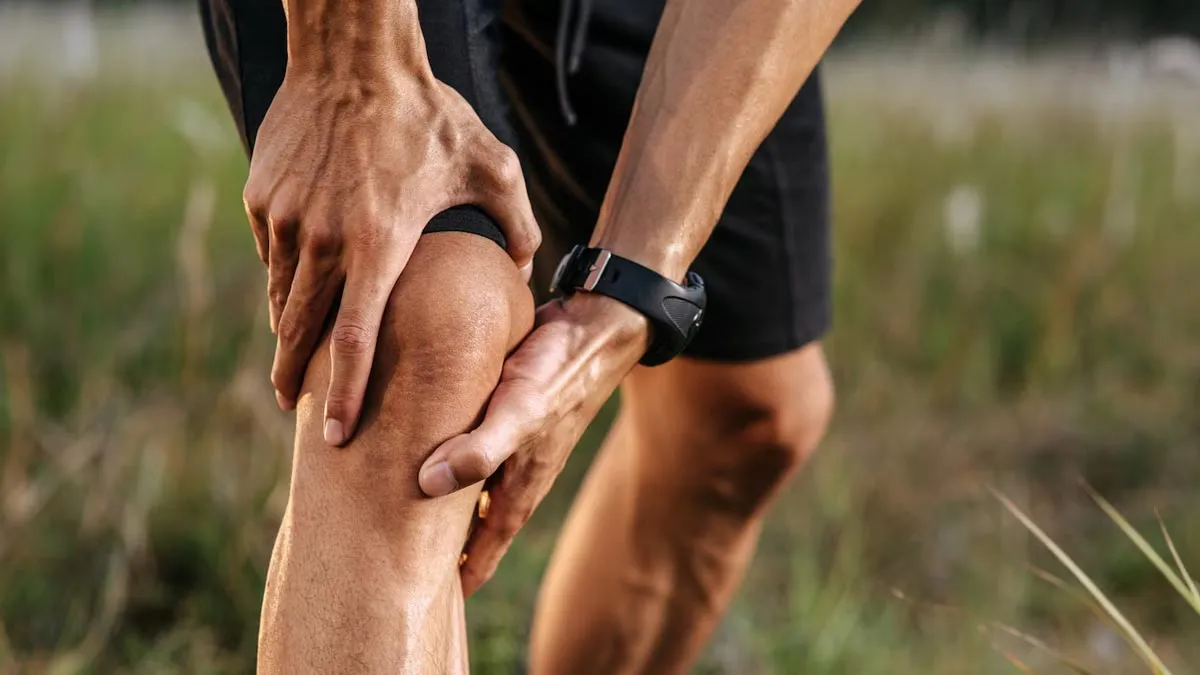
We often associate weak knees with nervous excitement, like when meeting someone special. But if your knees suddenly feel unstable or weak, the cause may be more than just nerves. Various medical conditions, deficiencies, and lifestyle factors can contribute to knee weakness. Speaking with the OnlyMyHealth team, Dr Pushkar Chawla, Director- Orthopaedics and Trauma Services, Indian Spinal Injuries Centre, Vasant Kunj, lists them all.
Table of Content:-
Medical Conditions That Can Cause Sudden Knee Weakness

Certain injuries and illnesses can lead to sudden knee instability, making it difficult to stand or walk. Some common causes include:
Acute Ligament Injuries: Tears in the ACL, PCL, MCL, or LCL can cause immediate instability. These often occur during sports or trauma.
Meniscus Tears: Damage to the knee’s cushioning cartilage can result in pain, swelling, and a sensation of the knee "giving way."
Fractures: A broken patella, tibia, or femur affecting the knee joint can cause severe pain and weakness.
Infections: Knee infections lead to rapid swelling, pain, and warmth, requiring immediate medical attention.
Neurological Conditions: Issues like peripheral neuropathy, nerve compression, or stroke can disrupt muscle control, causing knee weakness.
Is Anxiety Making Your Knees Weak?

Knee weakness can also stem from anxiety, stress, or nervousness, often accompanied by palpitations, shortness of breath, or sweating. Unlike physical causes, psychogenic knee weakness may be inconsistent—some movements feel weak, but others remain unaffected. A medical evaluation can help distinguish between anxiety-related weakness and a physical problem.
Can Vitamin Or Mineral Deficiencies Weaken Your Knees?
Nutritional deficiencies can contribute to muscle weakness and instability. Key vitamins and minerals that play a role include:
Vitamin D: Essential for calcium absorption and muscle function; deficiency may cause muscle weakness and bone pain.
Vitamin B12: Crucial for nerve health; deficiency can lead to peripheral neuropathy and gait problems.
Potassium: Important for muscle contraction; low levels may cause cramps and weakness.
Magnesium: Supports muscle and nerve function; deficiency can result in fatigue and weakness.
Calcium: Vital for bone and muscle strength; chronic deficiency can weaken bones and muscles over time.
The Role Of Posture And Exercise In Knee Health
Poor posture and a sedentary lifestyle can also contribute to knee weakness. Here’s how:
Muscle Imbalances: Poor posture can cause some muscles to become tight and others weak, affecting knee alignment and stability.
Lack of Exercise: Reduces proprioception (the body’s sense of movement and balance), increasing the risk of falls.
Increased Joint Stress: Prolonged inactivity can contribute to osteoarthritis, leading to knee pain and instability.
When Should You See A Doctor?

Seek medical attention if:
- Knee weakness is sudden and severe.
- There’s significant pain, swelling, or bruising.
- You cannot bear weight on the knee.
- The weakness persists or worsens, affecting daily activities.
How To Strengthen Weak Knees
Whether due to injury, posture, or lifestyle, strengthening the knee can help prevent further issues. Some effective approaches include:
Physical Therapy: A therapist can design an exercise plan to strengthen knee-supporting muscles.
Strengthening Exercises: Straight leg raises, wall squats, and lunges can improve quadriceps strength.
Low-Impact Activities: Swimming, cycling, and walking can enhance fitness while reducing knee stress.
Weight Management: Losing extra weight can relieve pressure on the knees.
Supportive Footwear: Proper shoes can help maintain knee alignment and reduce strain.
Surgical Interventions: In severe cases, procedures like ACL reconstruction, meniscectomy, or total knee replacement may be necessary.
Final Thoughts
If you’re experiencing knee weakness, don’t ignore it. While anxiety can sometimes be the culprit, other underlying conditions might be at play. Identifying the cause and taking proactive steps—whether through lifestyle changes, therapy, or medical treatment—can help keep your knees strong and stable for years to come.
Also watch this video
How we keep this article up to date:
We work with experts and keep a close eye on the latest in health and wellness. Whenever there is a new research or helpful information, we update our articles with accurate and useful advice.
Current Version